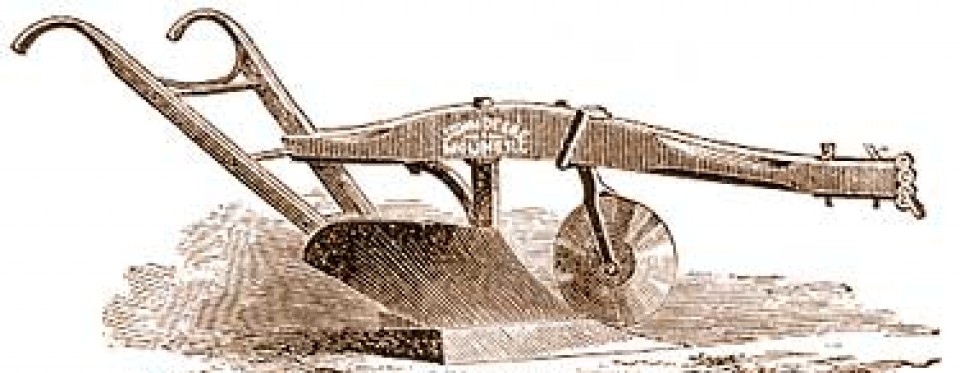Tags
Bible Study, Christian Character, christian growth, Discipleship, faith, God's will, Obedience, Plow, Surrender
And he (Stephen) said, “Brethren and fathers, listen: The God of glory appeared to our father Abraham when he was in Mesopotamia, before he dwelt in Haran, and said to him, ‘Get out of your country and from your relatives, and come to a land that I will show you.’ Then he came to a land of the Chaldeans and dwelt in Haran. And from there, when his father was dead, He moved him to this land in which you now dwell. And God gave him no inheritance in it, not even enough to set his foot on. But even when Abraham had no child, He promised to give it to him for a possession, and to his descendants after him.” (Acts 7:2-5)
Abraham, the father of faith (Romans 4:16), lived the life of The Plow. This is shown in his move from Mesopotamia, to the land of the Chaldeans, to the land of Promise. To understand the magnitude of what Abraham embraced we must have a little understanding of the culture in which he lived. Much like today the person who owned land was very prosperous. Having land meant having power, and having power in the big city meant much more than having power out in the boonies of the unincorporated area. Land ownership was acquired through inheritance and very little land was bought or sold in the city. Abraham was most likely a wealthy man in the most important area in the populated world. He had it all and his ancestors were set up for life as one of the most powerful families on earth. But his faith in God allowed him to embrace The Plow and the man of faith was called to leave it all behind and move to the country. Not only was he called to move to the country, but he was not to purchase any land there. He had to have faith in the promise of God that one day his descendants would gain the Promised Land by inheritance from God and the whole earth would be subsequently blessed through him. Only a man who embraced The Plow could hold on to such a promise. Abraham had to give up earthly wealth and position for a future possession. What faith he had. What obedience he possessed. What pain he must have endured. But that is the price of The Plow.
By faith Abraham moves from the big city to the country. From rich and powerful landowner to a wanderer of the desert whose only land he will purchase is a burial plot for his family (Genesis 23) Abraham became a man open to The Plow. His life was truly not normal. God called Abraham (then called Abram) to leave his worldly inheritance to receive his spiritual inheritance in a land his family will inherit some 400 plus years later. The Plow created a new work: a new people to be the possession of Yahweh and a light to the world had begun. The call is recorded in Genesis 12:1-3. With a simple act of obedience (Genesis 12:4) Abram departs the way of the world and steps into the world of the promise. Once he arrives in the land of promise he builds an altar (just like Noah) to Yahweh based on the promise, not a land deed (Genesis 12:7-8). The world in which Abraham lived wealth was acquired by inheritance. Abraham left the worldly inheritance for a better inheritance: the inheritance given by Yahweh by an eternal covenant. The life of Abraham is quite fascinating with many lessons to be learned about faith and trusting the promise of God, but it came about because he dared to do something different and embrace The Plow.
By faith Abraham obeyed when he was called to go out to the place which he would receive as an inheritance. And he went out, not knowing where he was going. By faith he dwelt in the land of promise as in a foreign country, dwelling in tents with Isaac and Jacob, the heirs with him of the same promise; for he waited for the city which has foundations, whose builder and maker is God. By faith Sarah herself also received strength to conceive seed, and she bore a child when she was past the age, because she judged Him faithful who had promised. Therefore from one man, and him as good as dead, were born as many as the stars of the sky in multitude – innumerable as the sand which is by the seashore. These all died in faith, not having received the promises, but having seen them afar off were assured of them, embraced them and confessed that they were strangers and pilgrims on the earth. For those who say such things declare plainly that they seek a homeland. And truly if they had called to mind that country from which they had come out, they would have had the opportunity to return. But now they desire a better, that is, a heavenly country. Therefore God is not ashamed to be called their God, for He has prepared a city for them. (Hebrews 11:8-16)
